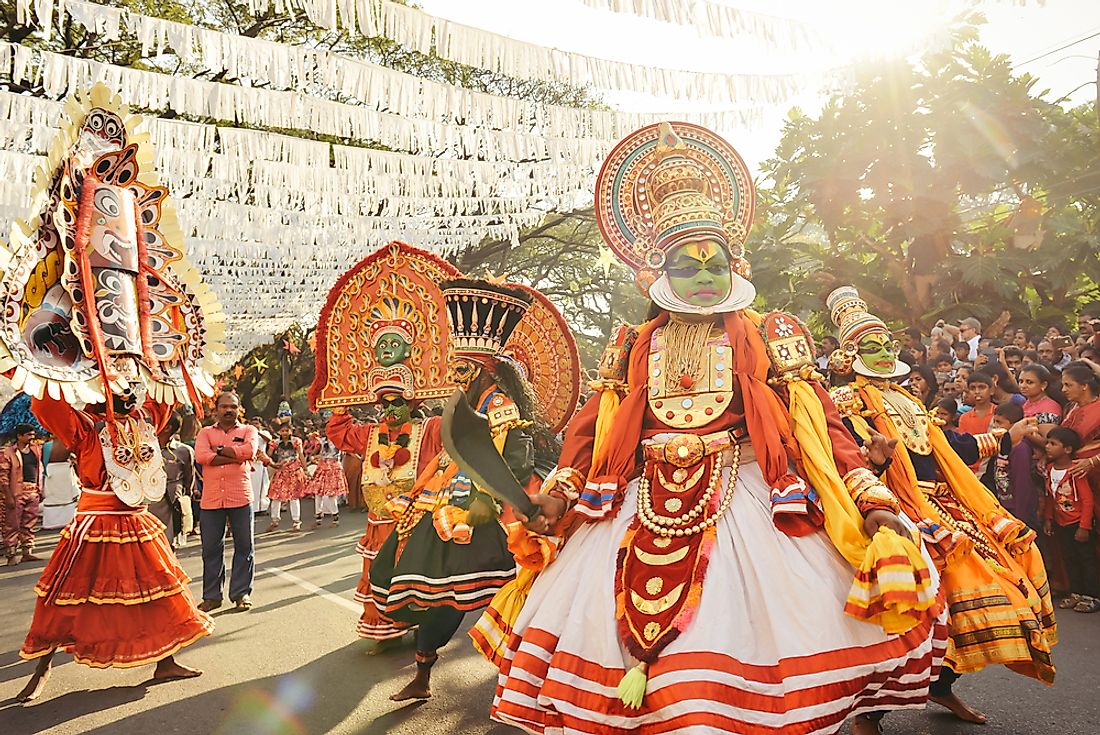Biggest Ethnic Groups In India

India is a unique country with great diversity in ethnicities, race, religion, language, culture, cuisine and in every other aspect of the human society. Indian civilization is one of the oldest in the world and primarily consists of the Into-Aryans of North India and the Dravidians of South India, the latter being the original inhabitants of the country, with links to the people of the Indus Valley Civilization while the former migrated to the country at about 1800 BCE. As India has such a diverse cultural demographic, it makes sense that the country is also incredibly linguistically diverse.
Indo-Aryans
The Indo-Aryan people are part of the various Indo-European ethnolinguistic groups who speak one of the many Indo-Aryan languages. It is estimated that the Indo-Aryans first migrated to the Indian Subcontinent of South Asia around 1800 BCE. Indo-Aryans make up the majority of the Indian population and are mostly located in north and central India.
The Indo-Aryans are the most diverse group of people in India, being made up of Assamese, Bengali, Gujarati, Hindi, Kashmiri, Konkani, Marathi and Punjabi. The Indo-Aryans dominated all of India, outside of South India where most Indians are of Dravidian origin. Many of India's great dynasties and empires came from the Indo-Aryan peoples of India, like the Maurya Empire (322-185 BC), the Gupta Empire (320-558), the Karkota Empire (625-885), the Pala Empire (700-1100), the Maratha Empire (1674-1818), and the Mughal Empire (1526-1857), just to name the major ones. Each of the Indo-Aryan ethnic groups has their own language or languages.
Dravidians
The Dravidian people are any native speakers of the Dravidian languages in the Indian Subcontinent of South Asia. Almost all the Dravidians of India live in the south of India. The five major ethnic groups of Dravidian people in India are Kannadiga, Malayali, Tulu, Tamil, and Telugu.
The ancient Indus Valley civilization in India was believed to have been of Dravidian origin in northern India, but then the Dravidian people were pushed south when the Indo-Aryans came in and the Kuru Kingdom in northern Indian arose. Later south India was dominated by the three Dravidian kingdoms of the Cheras, Cholas, and the Pandyas. These three kingdoms have been shown to sponsor the growth of literature, music, the arts and to have done extensive trading. The three kingdoms also supported and were tolerant of Buddhism, Jainism, and Hinduism, which is part of the reason why the Dravidian people have a diverse religious following. The Chera kingdom fell to the Rashtrakuta Dynasty over time, and then eventually the Vijayanagara Empire dominated all of south India. Eventually, after a few centuries in power, the Vijayanagara Empire collapsed in 1646 due to rebellions and pressure from the Muslim north. South India then split up into smaller states that were then slowly taken over by colonists from Europe. The major languages spoken by the Dravidian people are Brahui, Kannada, Malayalam, Tamil, and Telugu.
Mongoloid and Other Minority Groups
The Brachycephalic peoples were the first to arrive in India, having traveled all the way from Africa. In modern mainland India, only small groups of the Brachycephalic peoples, like the Irulas, Kodars, Paniyans, and Kurumbas, live in small areas in southern India in hill tribes. They are mostly found in the Indian territories of the Andaman and Nicobar Islands. The next group of people to arrive in India were the were the Austrics, who were the group that paved the way for the modern foundation for Indian civilization. They were the first in India to have cultivated vegetables and rice, as well as made sugar. There are very few Austrics found in India now, but their languages still live on in Eastern and Central India. The Mongoloids are found in the various states in the northeastern part of India, as well as in the northern areas in the states of Ladakh, parts of West Bengal, and Sikkim. The last minority group in India are the Western Brachycephals who mostly live in the western part of India is areas like Kashmir, Gujarat, Tamil Nadu and Maharashtra.
Biggest Ethnic Groups In India
| Rank | Ethnic Group | Share of Indian Population |
|---|---|---|
| 1 | Indo-Aryan | 72% |
| 2 | Dravidian | 25% |
| 3 | Mongoloid and Other Minority Groups | 3% |











